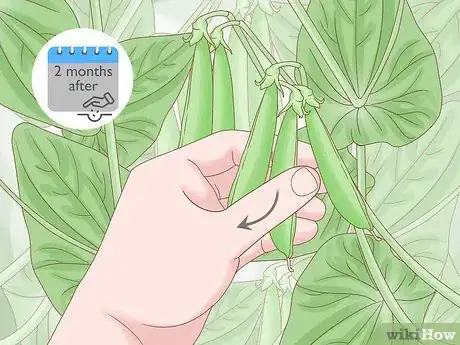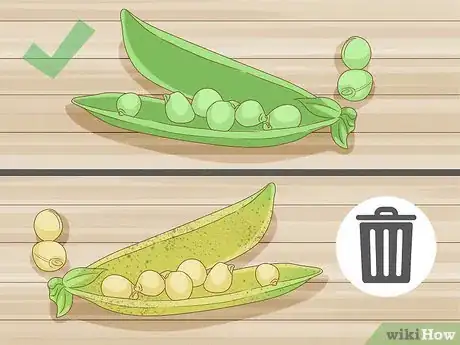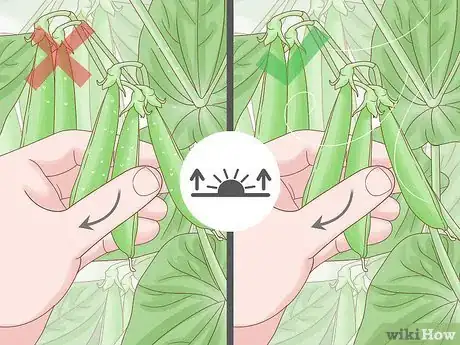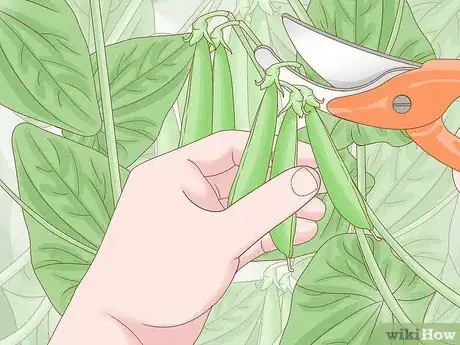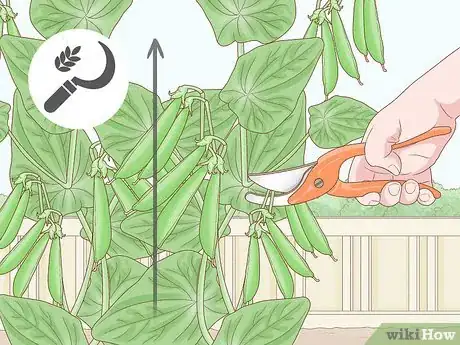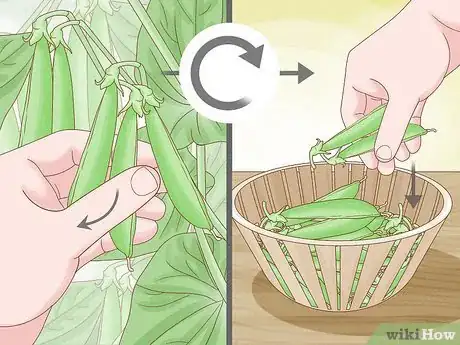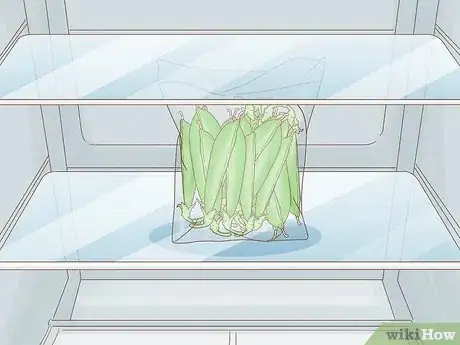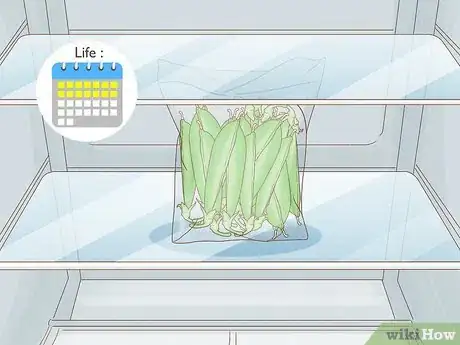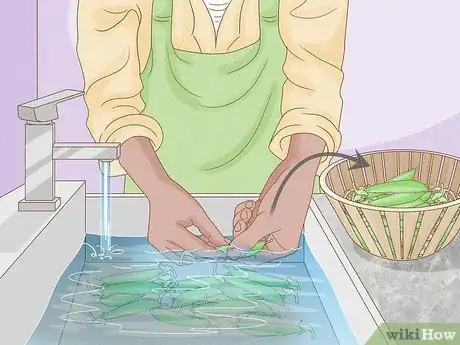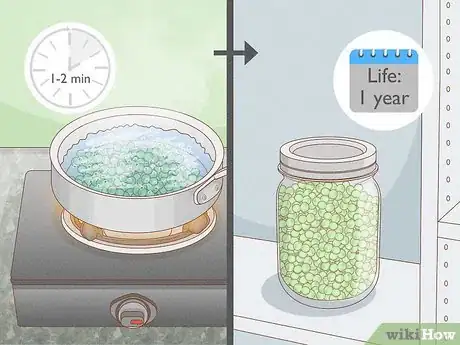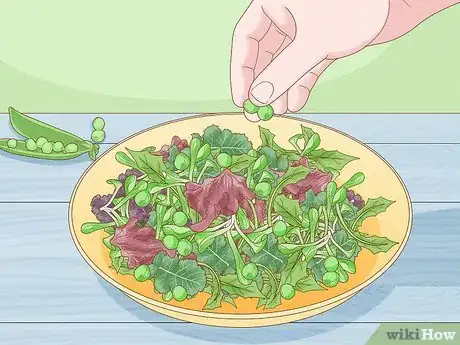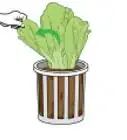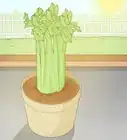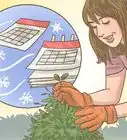This article was co-authored by Ben Barkan and by wikiHow staff writer, Sophia Latorre. Ben Barkan is a Garden and Landscape Designer and the Owner and Founder of HomeHarvest LLC, an edible landscapes and construction business based in Boston, Massachusetts. Ben has over 12 years of experience working with organic gardening and specializes in designing and building beautiful landscapes with custom construction and creative plant integration. He is a Certified Permaculture Designer, is licensed Construction Supervisor in Massachusetts, and is a Licensed Home Improvement Contractor. He holds an associates degree in Sustainable Agriculture from the University of Massachusetts Amherst.
There are 11 references cited in this article, which can be found at the bottom of the page.
This article has been viewed 5,409 times.
If you’ve got sweet, crisp snap peas growing in your garden, you’re probably looking forward to snacking on them just as soon as they’re ripe. But, how do you know when snap peas are ready to harvest? We're here to help with a comprehensive guide that will walk you through how to harvest snap peas and make the most of these tasty legumes.
Steps
Plan to harvest snap peas 50-70 days after planting.
-
Start picking your peas about 2 months after sowing the seeds. Don’t worry, your pea plants will keep producing, and harvesting ripe peas actually encourages the plants to grow new ones.[1] X Trustworthy Source Penn State Extension Educational organization dedicated to delivering science-based information to people, businesses, and communities Go to source
Look for pods that are plump and firm.
-
Snap a pod in half and look for thick walls and small peas. You can certainly do a taste test, too! Ripe peas are bright in color as well as crisp and sweet.[2] X Research source If you wait until the peas are too large inside the pods, the pods get pretty tough and stringy.[3] X Research source
- Harvest any over-ripe pods you see, as well, to encourage your plant to produce new peas.
- Discard yellow or speckled pods.[4] X Research source
Harvest peas after the morning dew dries.
-
This tip will ensure your peas are the most flavorful. If you harvest them too early in the day, the dew can cause your peas to rot more quickly. If you harvest them in the heat of the day, they won’t be as tasty.[5] X Research source
Use shears to cut the peas off of the vine.
-
Snapping them off by hand can kill the vine. Instead, take a pair of shears or scissors and simply snip the pea pod from the vine just above the small star-shaped leaf at the top of the pod. Easy peasy! (See what we did there? 😉)[6] X Research source
- If you don’t have any garden tools on hand, hold the vine with one hand and pluck the pea pod with the other to minimize damage to the vine.
Work from the bottom of the vine to the top.
-
Peas at the bottom usually ripen first. The same is true if you have a bush variety. Search through the vines thoroughly to make sure you get all of the ripe peas.[7] X Research source
Continue harvesting peas on a daily basis.
-
Check your pea plants every 1-3 days for newly-ripe peas. Pluck them as soon as you notice them ripen. Not only will you increase your harvest, but this also encourages your plant to continue producing peas. Keep harvesting until you’ve plucked all the peas from the vines.[8] X Research source
Refrigerate the peas and try to use them right away.
-
Cool the peas as soon as you’ve plucked them. To preserve the texture and flavor of the peas, take them inside immediately after harvesting.[9] X Research source Store the peas in a plastic bag and stick it in your refrigerator.[10] X Research source Snap peas will be the tastiest right after harvesting, so feel free to start munching!
Store your peas in the fridge for up to 2 weeks.
-
These legumes won't last long after harvesting. However, you can store a small batch for a short time—the peas will last up to 14 days in the fridge.[11] X Research source
- Discard any peas that are brown, have spots on them, or feel mushy.
Wash the peas just before cooking or eating them.
-
Washing the peas helps to remove dirt and debris. Rub the pea pods while rinsing them under running water. There’s no need to use vegetable wash or any other type of cleaner—water will do the trick![12] X Trustworthy Source US Food and Drug Administration U.S. government agency responsible for promoting public health Go to source
- Don't wash your peas before you store them. Wait until you're ready to use them.
- Some varieties also have strings that need to be removed.[13] X Research source Cut off the very tip of the pea and you'll see the string attached—just pull it down the seam of the pea pod and throw it away.
Freeze the peas to preserve them long-term.
-
Blanch your snap peas before freezing so they retain their flavor. Heat a pot of water to a rapid boil and submerge the peas, pods and all, for 1-2 minutes. Remove the peas and dunk them in an ice-water bath to chill them and stop them from cooking. Dry the peas thoroughly, then put them on a single layer in a tray and stick them in the freezer until they are frozen solid. Then, store the peas in an airtight container in the freezer for up to 1 year.[14] X Trustworthy Source Penn State Extension Educational organization dedicated to delivering science-based information to people, businesses, and communities Go to source
Eat the peas by themselves or toss them into dishes.
-
Enjoy fresh snap peas right off the vine, pod and all! These sweet, crunchy veggies make the perfect snack.[15] X Trustworthy Source Penn State Extension Educational organization dedicated to delivering science-based information to people, businesses, and communities Go to source You can also roast, sear, steam, or sauté them!
- Pea vines and leaves are also edible.[16] X Research source
You Might Also Like

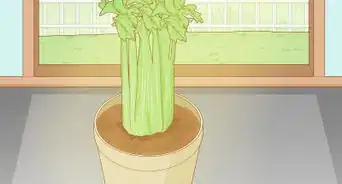
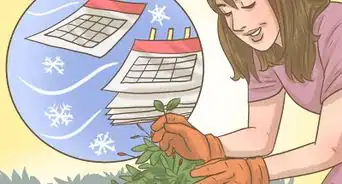
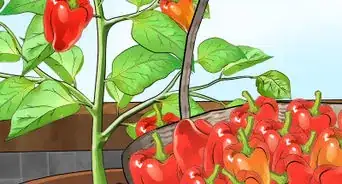
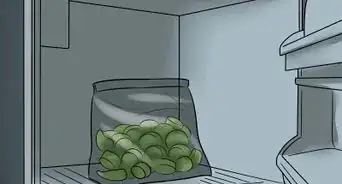
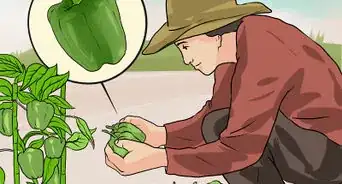
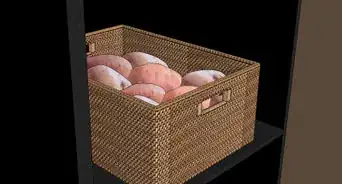
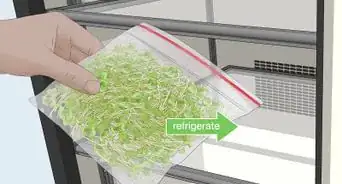
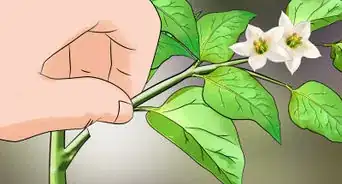
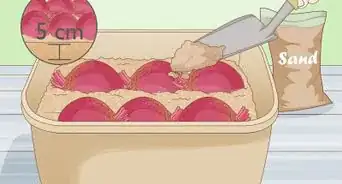
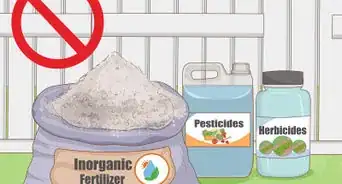
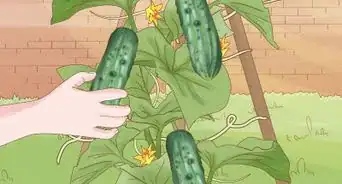
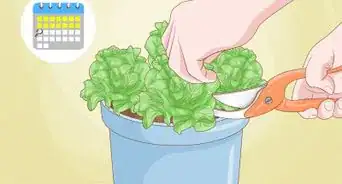

References
- ↑ https://extension.psu.edu/a-gardeners-guide-to-peas
- ↑ https://www.slenderkitchen.com/article/sugar-snap-peas
- ↑ https://web.extension.illinois.edu/veggies/peas.cfm
- ↑ http://counties.agrilife.org/tyler/files/2016/02/Sugar-Snap-Peas.pdf
- ↑ https://piedmontmastergardeners.org/article/guidelines-for-harvesting-vegetables/
- ↑ https://piedmontmastergardeners.org/article/guidelines-for-harvesting-vegetables/
- ↑ https://veggieharvest.com/vegetables/pea-growing-and-harvest-information/
- ↑ https://web.extension.illinois.edu/veggies/peas.cfm
- ↑ https://extension.umn.edu/vegetables/growing-peas#harvest-and-storage-296314
- ↑ https://agrilifeextension.tamu.edu/browse/featured-solutions/gardening-landscaping/sugar-snap-peas/
- ↑ https://agrilifeextension.tamu.edu/browse/featured-solutions/gardening-landscaping/sugar-snap-peas/
- ↑ https://www.fda.gov/consumers/consumer-updates/7-tips-cleaning-fruits-vegetables
- ↑ https://web.extension.illinois.edu/veggies/peas.cfm
- ↑ https://extension.psu.edu/preserving-peas
- ↑ https://extension.psu.edu/a-gardeners-guide-to-peas
- ↑ https://extension.umn.edu/vegetables/growing-peas
About This Article

